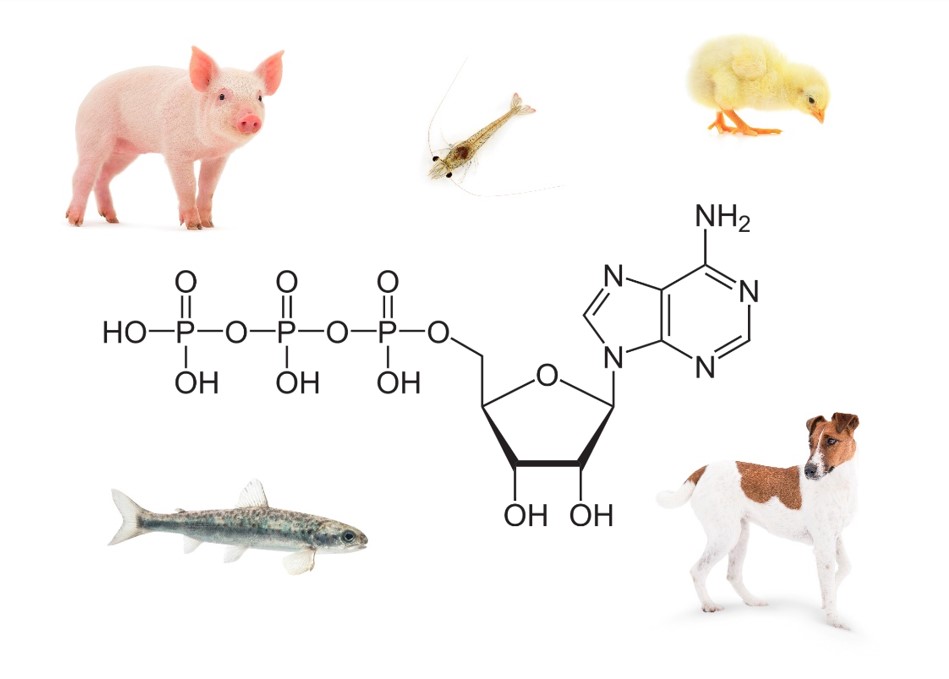The role of dietary nucleotides in monogastric animals

Dear colleagues,
This week I will talk about nucleotides, a semi-essential nutrient that well balanced in animal diets are an exceptional ally to improve animal health through nutrition.
As a quick summary about nucleotides, we can say that animal feeds usually have a lack of nucleotides because few nutritionists take them into account in their formulation and that feed ingredients usually have very low or unavailable concentrations, but there are several studies that show that a correct level of nucleotides can:
– Improve immune development and disease resistance in puppies.
– Increase the resistance of shrimp to disease.
– Improve the digestibility of soy-rich diets in carnivorous fish and shrimp.
– Improve growth, intestinal development and immune status and oxidative stress in salmon, pigs, broilers, and nursing calves.
– In addition, nucleotides seem to improve, from my point of view indirectly, liver function and intestinal flora in animals.
Although nucleotides can be synthesized de novo, several tissues, especially those with a rapid turnover rate, such as intestinal mucosa and immune, may benefit from an exogenous supply to decrease energy expenditure.
In times of disease states, periods of limited nutrient intake or rapid growth, nucleotides may become semi-essential nutrients.
However, the results of nucleotide utilization are highly dependent on the type of product used, so a state-of-the-art product should at least consider the following points
– Concentration
– Balance
– Availability
And take into account that if they are not protected, they are not valid for ruminants.
Another issue to take into account is not to exceed the recommended dose because a high dose or a bad balance of this can give the opposite effect to the desired one, due to e.g. the increase of uric acid levels at metabolic level.
Finally, I attach an article that, although it is a few years old, makes a series of reflections that are still very valid today.
Enjoy the article.

